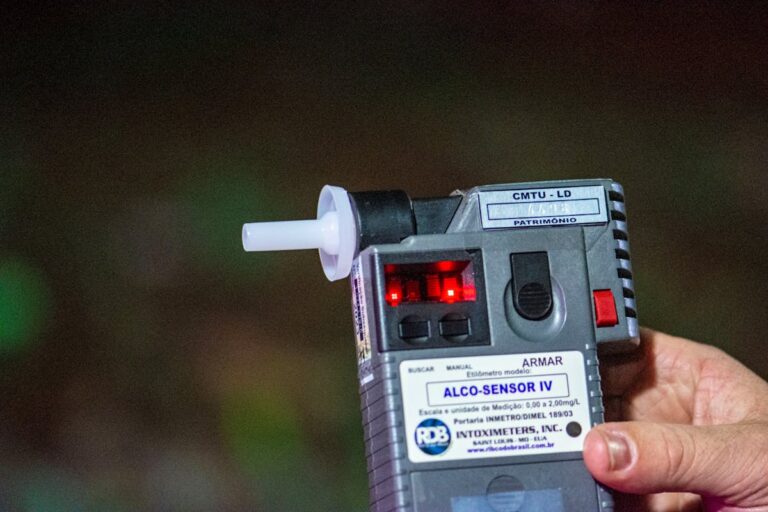Felony Driving While Intoxicated: When Is DWI a Felony in Texas?

The categorization of Driving While Intoxicated (DWI) as a felony in Texas is contingent upon several key factors, including the frequency of offenses and the severity of the ensuing consequences. The third DWI offense, for example, is automatically deemed a third-degree felony, entailing a potential prison sentence of up to 10 years. Other factors, such as causing serious injury or death, having a child in the vehicle, or a high blood alcohol concentration (BAC) can also elevate the charges. This raises significant questions about the specifics of these regulations, the penalties they incur, and how they are legally processed.
Understanding Texas DWI Laws
An estimated one in three people will be involved in a drunk driving accident in their lifetime, a sobering statistic that underscores the significance of understanding Texas DWI laws. These laws are complex and multifaceted, addressing various elements such as intoxication levels, sentencing alternatives, and administrative penalties.
A fundamental aspect of these laws relates to DWI defenses. A strong legal representation can construct viable defenses, challenging evidentiary aspects like the reliability of breath or blood tests, the legality of the traffic stop, or the handling of field sobriety tests. Evidentiary challenges can often lead to plea bargains, reducing severe penalties.
Intoxication levels heavily influence the severity of the charges. Texas law holds a blood alcohol concentration of 0.08% as the legal limit, with higher levels escalating charges and penalties.
Moreover, administrative penalties, such as license suspension, are independent of criminal charges. Even without a conviction, a DWI arrest can result in a license suspension, impacting an individual’s daily life.
Understanding Texas DWI laws is essential in maneuvering potential pitfalls and penalties. Proper comprehension of these laws can facilitate informed decisions, emphasizing the importance of legal representation in such cases.
Misdemeanor Vs Felony DWI
Steering through the complexities of the Texas DWI laws necessitates a clear understanding of the critical distinctions between misdemeanors and felonies. A thorough analysis of these categories, their implications, and the consequences of a felony DWI will provide the needed clarity. Armed with this knowledge, one can better comprehend the severity of DWI charges and the potential legal ramifications in Texas.
Defining Misdemeanor and Felony
While both misdemeanor and felony DWIs are serious offenses in Texas, understanding their distinctions is vital in comprehending the severity of the charges one might face. Misdemeanor definitions and felony classifications each carry their own implications and potential penalties.
Misdemeanors, typically considered less severe than felonies, are divided into three categories in Texas: Class A, B, and C. A Class A misdemeanor, the most serious, may result in up to a year in county jail and a fine of up to $4,000. A DWI first offense usually falls under this category. Class B and C misdemeanors carry less severe consequences.
On the other hand, felony classifications are more severe and include state jail, third-degree, second-degree, and first-degree felonies. A DWI becomes a felony in Texas under certain circumstances, such as when the offender has had previous DWI convictions, causes serious bodily injury or death, or has a child passenger in the vehicle. The penalties for these offenses can range from 180 days to 99 years in prison, depending on the seriousness of the felony.
Understanding these definitions is significant as it directly influences the potential consequences one may face when charged with a DWI.
Texas DWI Laws Explained
Deciphering the intricacies of Texas DWI laws can greatly impact one’s understanding of misdemeanor and felony DWI charges. Under Texas law, an individual is considered intoxicated if they do not have the normal use of mental or physical faculties due to the ingestion of alcohol, a controlled substance, a drug, a dangerous drug, a combination of two or more of those substances, or other substance into the body; or if they have a blood alcohol concentration (BAC) of 0.08% or more.
DWI offenses become felonies under certain circumstances. For instance, a third DWI offense is automatically classified as a third-degree felony. DWI offenses also escalate to felonies if they involve an accident with serious bodily injury (intoxication assault) or a death (intoxication manslaughter).
DWI defenses, though challenging, can be employed effectively with the assistance of legal counsel experienced in Texas DWI laws. These defenses may scrutinize the legality of the traffic stop or challenge the accuracy of breath or blood tests. Understanding the nuances of intoxication levels can also play a pivotal role in formulating a robust defense strategy.
Felony DWI: Consequences and Penalties
Understanding the difference between misdemeanor and felony DWI charges is vital, as the penalties and consequences vary greatly between the two. A misdemeanor DWI usually relates to first or second offenses with lower intoxication levels, while a felony DWI involves higher intoxication levels or third and subsequent offenses.
DWI defenses are important in these cases, as they can potentially reduce the severity of the charges. However, the penalties for felony DWI are much harsher than those for misdemeanors. A person found guilty of felony DWI may face hefty fines, suspension of driving privileges, mandatory alcohol education programs, and even imprisonment.
Moreover, the repercussions go beyond the legal domain. A felony DWI can greatly impact an individual’s personal and professional life, with potential loss of employment and strained personal relationships.
It’s essential to understand the gravity of a felony DWI charge and its potential implications. With intoxication levels playing a vital role in categorizing the offense, it’s important to not only understand and respect the legal limits but also to seek professional legal counsel if faced with such charges. This knowledge can help mitigate the penalties and better navigate the legal system.
Felony DWI: Key Factors
Understanding the key factors of a felony DWI in Texas is essential to maneuvering the legal implications associated with such charges. Attention must be given to Texas DWI laws, which outline the legal definitions and precedents for these offenses. Additionally, the severe consequences of a third offense, as well as the penalties specific to felony DWIs, underscore the seriousness of these charges and its potential long-term impact.

Texas DWI Laws
Maneuvering through the complexities of Texas DWI laws, particularly those pertaining to felony DWI, requires an acute understanding of the key factors involved. One of these factors is the habitual offender clause, which increases the severity of penalties for repeat offenders.
DWI checkpoints, in concert with intoxication levels, are the frontline in the enforcement of these laws. At these checkpoints, officers use breathalyzer tests to measure drivers’ blood alcohol concentration (BAC). Texas law sets the legal BAC limit at 0.08%. However, individuals under 21, a BAC of any detectable amount constitutes a DWI under the state’s Zero Tolerance Law.
Beyond the BAC, the law also considers the presence of controlled substances. A driver can be charged with a DWI if impaired by drugs, regardless of the legality of the substance. Also, the law takes into account aggravating factors such as having a passenger under 15 in the vehicle, which can elevate a DWI charge to a felony.
Penalties for DWI in Texas are stringent, aimed at deterring future infractions. They range from fines and license suspension for first-time offenders to imprisonment for repeat offenders. However, we’ll investigate deeper into third-offense consequences in our next segment.
Third-offense Consequences
In the domain of Texas DWI laws, the consequences of a third offense are considerably severe, as this offense is categorized as a third-degree felony. The state takes a stern, unyielding stance against habitual offenders, reflecting its commitment to ensuring road safety and deterring recurrent violations of the DWI laws.
Third offense penalties are designed not only as punitive measures but also to dissuade individuals from drinking and driving. They include the risk of a prison sentence of up to 10 years, significant fines, and the potential for a lengthy driver’s license suspension. Additionally, offenders might be required to install an ignition interlock device in their vehicle or even to participate in alcohol education or treatment programs.
Moreover, the third offense in Texas also carries social and personal consequences. The felony conviction can create significant barriers to employment, housing, and certain civil rights. From a personal standpoint, the impact on relationships and mental health can be profound.
Therefore, it is critically important for individuals to understand the gravity of a third DWI offense in Texas. The consequences are far-reaching, with both legal and personal implications that can dramatically affect one’s life.
Felony DWI Penalties
With a clear comprehension of the weighty implications of a third DWI offense in Texas, we now turn our attention to the penalties associated with Felony DWI, and the key factors that influence them.
The penalties for Felony DWI in Texas are severe, with minimum jail sentences ranging from 2 to 10 years, fines up to $10,000, and a license suspension of up to 2 years. The court may also mandate community service, DWI education programs, and installation of an ignition interlock device.
Aggravating factors greatly influence these penalties. Previous convictions, a high blood alcohol concentration, or causing injury or death can result in harsher sentences. Conversely, effective legal defenses can mitigate these penalties. For instance, questioning the accuracy of blood or breath tests, challenging the legality of the traffic stop, or demonstrating a lack of probable cause can potentially reduce the sentence.
It is imperative to understand the gravity of these penalties and the importance of an experienced legal counsel. A strategic defense can greatly impact the final verdict and consequences, making this a critical aspect of any DWI felony case in Texas.
Consequences of Felony DWI
The aftermath of a felony DWI conviction in Texas can be a life-altering experience, laden with hefty penalties that extend beyond simple fines and jail time. The personal, professional, and societal implications can be profound, and often, the convicted individual is required to participate in rehabilitation programs as part of their sentence.
These programs, aimed at preventing recidivism, can be rigorous and time-consuming. They often include alcohol education classes, group therapy sessions, and one-on-one counseling. While these programs may seem intimidating, they are vital for those hoping to regain control over their lives after a felony DWI conviction.
Moreover, a felony DWI conviction can severely impact one’s career prospects. Many employers are hesitant to hire individuals with a felony record, and certain professions may be completely off-limits. Consequently, securing competent legal representation is essential in these cases. An experienced attorney can provide sound advice, possibly negotiate lesser charges, and guarantee that the accused’s rights are adequately protected.
Lastly, the social stigma associated with a felony DWI can lead to strained relationships and isolation. As a result, it’s critical for the convicted, their families, and society to understand the long-lasting consequences of felony DWI.
Repeat Offenses and Felony Charges
While understanding the repercussions of a felony DWI conviction is significant, it’s equally important to discuss the implications of repeat offenses and escalating felony charges. Texas law is stringent when it comes to repeat offenses, and each subsequent occurrence accentuates the severity of the punishment.
The first two DWI offenses are generally considered misdemeanors, but a third-time offender can face felony implications. This shift from misdemeanor to felony is critical, as it brings about severe consequences, including hefty fines, extended probation periods, and mandatory jail time. Repeat offenses signify a refusal to comply with the law, and the legal system responds by intensifying the penalties.
Texas employs a “three-strike” rule, meaning after three DWI convictions, the offender can face a third-degree felony charge. A fourth conviction is classified as a second-degree felony, and a fifth or subsequent offense becomes a first-degree felony. Each level increase in felony charges brings about more severe repercussions, both legally and socially.
Legal Procedures for Felony DWI
Steering through the intricate maze of legal procedures for a felony DWI in Texas can be intimidating. It’s imperative to comprehend the process in order to navigate it effectively. The first step is securing skilled legal representation, an action that can dramatically influence the course and outcome of your case. Your attorney serves as your advocate, guiding you through the complexities of the legal system and defending your rights.
Next, comes the phase of evidence collection, which plays a pivotal role in shaping your defense strategy. This may include field sobriety test results, breathalyzer readings, and police reports. In some instances, your attorney may challenge the validity of this evidence or how it was obtained, potentially weakening the prosecution’s case.
The final stage involves court proceedings, from pre-trial motions to potential plea negotiations and, if necessary, a trial. Here, your legal representation will endeavor to present a strong defense on your behalf, aiming to minimize the charges or achieve a favorable verdict. Understanding these procedures can empower you, providing a roadmap for the challenging journey of a felony DWI case in Texas.
Navigating a Felony DWI Charge
Having traversed the complex legal procedures of a felony DWI, the understanding of how to confront a DWI charge becomes a pertinent concern. The path of legal exploration is fraught with challenges, yet armed with knowledge and appropriate legal representation, you can effectively tackle these hurdles.
Defense strategies play an essential role in addressing a felony DWI charge. They provide a detailed roadmap to counter the charges, and may involve questioning the accuracy of breath or blood alcohol tests, challenging police procedures, and even disputing the validity of the traffic stop itself.
However, such strategies require a deep understanding of legal nuances and a thorough grasp of DWI laws in Texas. This is where professional legal representation steps in. A qualified attorney can not only provide counsel on the best defense strategies but also guide you through the complex legal landscape, thereby greatly improving your chances of a favorable outcome.
Frequently Asked Questions
What Are the Rehabilitation Programs Available for DWI Offenders in Texas?
Rehabilitation options for DWI offenders in Texas encompass a range of treatment programs. These include substance abuse education courses, inpatient and outpatient treatment, 12-step programs, and driving safety courses, among others.
Does a DWI Felony Affect My Ability to Gain Employment in Texas?
Yes, a DWI felony can impact employment opportunities in Texas. Employers typically conduct background checks and may be hesitant to hire individuals with such convictions, especially for roles involving driving or high responsibility.
How Can a DWI Felony Affect Child Custody or Divorce Proceedings in Texas?
In Texas, a DWI felony can considerably impact child custody arrangements during divorce proceedings. The legal implications include potential limitations on visitation rights, reflecting the court’s prioritization of a child’s safety and wellbeing.
Can a Felony DWI Charge Be Expunged From My Record in Texas?
In Texas, expunging a felony DWI charge from your record may be complex and necessitates competent legal representation. An understanding of the state’s expungement process is essential to successfully remove this serious offense from your record.
Does Texas Have Any Special Programs or Laws for First-Time DWI Offenders?
Yes, Texas offers first-time offender programs for DWI cases. These include educational courses, probation, and treatment programs. Additionally, legal defenses may be available depending on the specifics of the individual’s case.



